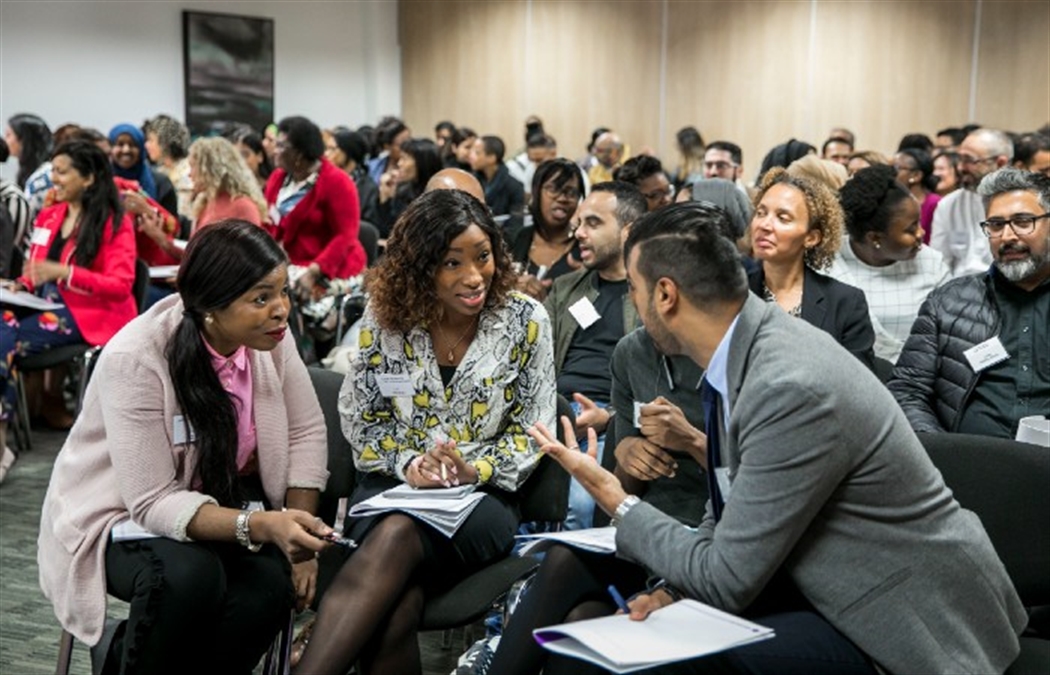Wed 19 Apr 2023

Supporting ethnic minorities into leadership is important for several reasons – top on the list is promoting diversity and inclusion, which has numerous benefits for organisations.
A diverse leadership team brings different perspectives, experiences, and ideas to the table, which can lead to better decision-making and problem-solving. These benefits take on another level at public sector organisations, where diverse leadership can help better understand and connect with the public they serve, thus responding to different communities' needs and concerns at pace.
Progress in diversity has been slow, but official data show that civil service staff broadly represents of the UK’s working population — 54.2% of civil servants are women, 14.3% are ethnic minorities, and 13.6% are disabled. However, there is more to be done to ensure this diversity is reflected at all leadership levels.
For example, the latest Civil Service Diversity and Inclusion Dashboard shows that there is a higher proportion of people from ethnic minority backgrounds working in the civil service than ever before, but ethnic minorities make up only 9.3% of officials in Grade 6. Representation in the senior civil service is 8.7%.
Addressing the need for improving the representation of ethnic minorities in the public sector, the conference Ethnic Minorities into Leadership brings together current and future leaders to take stock of the challenges people and organisations face as they move to improve diversity and inclusion in the workplace. Inspirational speakers and executive coaches share lived experiences and inspire peers to overcome barriers, build networks and become the leaders they aspire to be. The next Ethnic Minorities into Leadership is an online event on 8 June – register to attend.
Focus on recruitment
Brian Stanislas, Senior Inclusive Practice Lead, Civil Service HR (Cabinet Office), is one of the many leaders working towards making the civil service diverse and inclusive. Speaking at Ethnic Minorities into Leadership last year, he described the initiatives in place to improve the representation of ethnic minorities in the Senior Civil Service. These initiatives, he said, are being developed to monitor progress against 31 actions outlined in the Civil Service Diversity & Inclusion Strategy.
He explained the ongoing work seeks to upskill ethnic minority staff while improving the visibility of recruitment opportunities across the civil service – from the META programme, part of the Future Leaders Scheme, which is helping ethnic minorities compete effectively for senior roles, to the Leadership College for Government, and the Executive Leadership page of the Civil Service Careers website.
Stanislas highlighted the importance of using data and evidence to examine the representation of Black, Asian and Ethnic Minorities in the Senior Civil Service and the ways to increase it.
“We are developing an assurance framework to be able to track, monitor and map those 31 actions of delivery,” he said, noting the framework, powered by Government Recruitment Information Database (GRID), will use data to identify trends and any gaps in recruitment.
GRID will capture valuable non-personalised data from the civil service recruitment cycle, helping organisations to track numbers of applicants from ethnic minorities, female staff, disabled, LGBT+ people or older workers, thus improving representation from all backgrounds, voices and regions across the UK.
Former Senior Civil Servant Bernadette Thompson, currently Associate Director of Inclusion at Barts Health NHS Trust, is a confirmed speaker at the Ethnic Minority into Leadership conference on 8 June. Thompson presented at last year’s event, and her words still resonate: “Actions, not words,” she said.
Actions, not words
Examining the current landscape, Thompson explained that the Civil Service Race Forum remains the most active cross-government Race Network and that Departmental Race Networks continue to exist. However, their activities are under more scrutiny with due diligent checks.
She also explained that race network chairs generally feel that their activities and conversations are ‘policed’. Reflecting on what or who needs to change the status quo, she said that everyone has a role to play if we want to move the needle – allies, senior leaders, organisations and teams.
There are several steps that people can take to increase the representation of ethnic minorities, and the conference Ethnic Minorities into Leadership provides you with presentations and workshops to gain the skills needed to overcome unconscious biases, connect with peers, and meet with role models to be inspired from. View the agenda and register to attend.
View all news